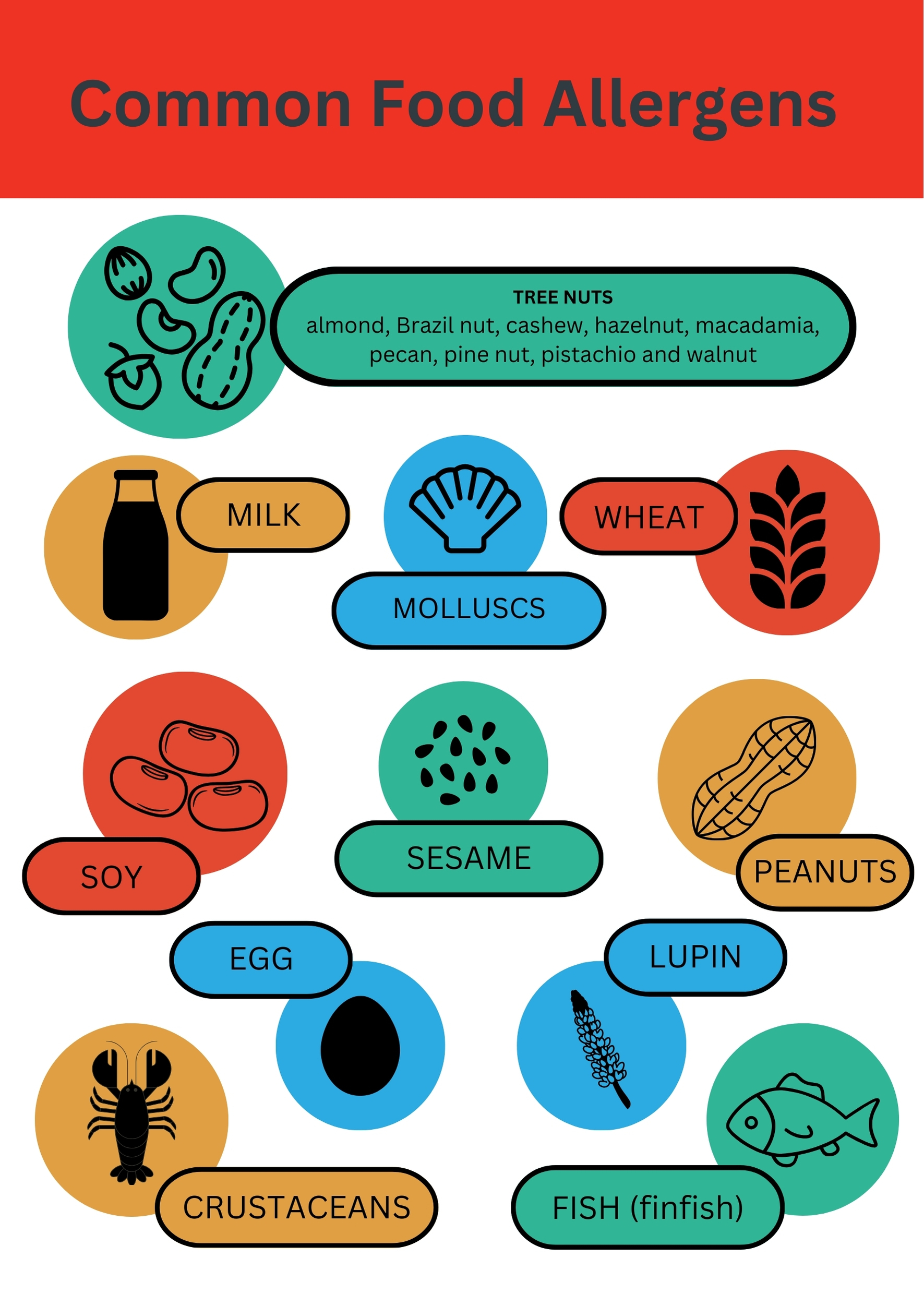New Plain English Allergen Labelling requirements (known as PEAL) have come into effect across Australia and New Zealand as of 25 February 2024.
These new requirements are designed to make allergen information on food packaging clearer and more consistent, to help consumers make more informed and safe choices. We’ve outlined what changes are required when labelling packaged food in this article.
However, there are additional requirements under PEAL that may impact wholesale foods made in bulk, or unpackaged foods that don’t require a label. For example, butchers selling value-added products (e.g. marinated meats, individual products in a display cabinet), and food made and packaged in bulk for caterers, cafes, restaurants and take away outlets (e.g. ice cream).

These types of businesses must know the common food allergens that can cause severe allergic reactions. Products that contain these allergens must have specific allergen information available upon request, even if a food label is not required.
How does PEAL impact my business?
Under PEAL, correct and accurate allergen information must be available if a customer requests it. Below are two examples to help explain how PEAL may impact your business.
Example 1: Butcher selling chicken kievs
A local butcher sells crumbed chicken kievs individually within the display cabinet. The butcher makes these in-house, stuffed with ham and cheese. A customer asks if the chicken kievs contain gluten. The butcher must be able to verify if the product does, and what type of gluten is present. In this case, they would need to know that the Kiev contains gluten derived from wheat in the crumbing. It’s important that the butcher can distinguish what type of gluten is present (i.e. derived from wheat, barley, oats, or rye).
Allergen information for this product must be documented and all staff should know where to find it if a customer asks. For example, the butcher may choose to record the ingredients in a logbook or display the ingredients list beside the product. Whichever way works for their business, easily available and accurate food allergen information must be available upon request.
Example 2: Ice cream manufacturer supplying to local cafes
If your business does not deal directly with consumers, then you must provide allergen information to your retail customers that do.
For example, an ice cream manufacturer supplies 5kg tubs of caramel pecan ice cream to local cafés in the area, which are then sold as individual scoops. To comply with the PEAL requirements ingredient and allergen information for this product should be made available to the retailer. The information must list any allergens present using mandatory specified terms. In this case, the manufacturer should list any allergenic ingredient as per the PEAL requirement. For example if pecans are present the information should state pecans specifically not tree nuts.
The café owner can decide how to do this, as a label on the tub may not always be easy to view. They may instead choose to display a list of allergens beside the ice cream in the display cabinet or have a list of ingredients behind the counter for staff to consult as needed.
Allergen transparency protects lives.
Food allergens can cause severe allergic reactions in some people. PEAL requirements aim to make allergen information clearer, more consistent, and prominent on food labels, to help consumers make more informed and safe choices.
However, food producers that aren’t required to label food for retail sale may also be impacted by these changes. Food business owners and their staff must know the specific food allergens present in the products they sell and be able to provide this information to customers if they ask.
More information on food allergen labelling can be found at the following resources:
Allergen labelling (foodstandards.gov.au)
Food allergies (foodstandards.gov.au)
Product exemptions from allergen labelling (foodstandards.gov.au)
Australia New Zealand Food Standards Code – Standard 1.2.3 – Information requirements – warning statements, advisory statements and declarations (legislation.gov.au) (section 1.2.3-4 specifically)
Queensland Health Allergen Labelling mandatory declarations
Allergen management info:
